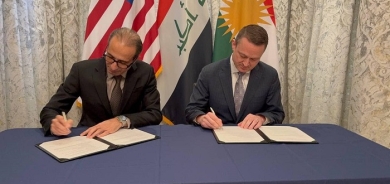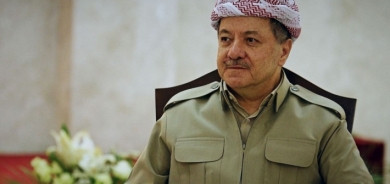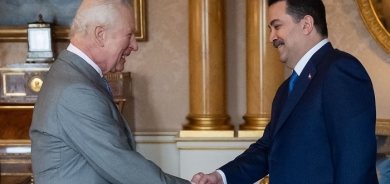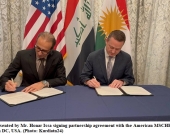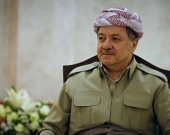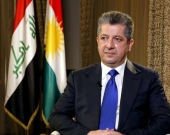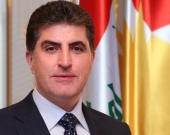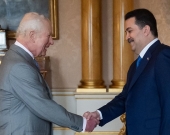Bulgarian protesters vow to bring down government

That’s been the scene in the city center every day for two months: groups of protesters facing the Council of Ministers building, accusing the government of corruption, inefficiency and nepotism.
Yavor Nikiforov, a 29-year-old computer science teacher, echoes the general feeling. "I’m protesting because this government made a lot of mistakes very fast and appointed thieves,” he says.
His roughly 250 fellow protesters include elderly and young alike and a few children.
A small handful of bored-looking police watch from the sidewalk.
The protests were prompted by the appointment of Delyan Peevski as head of the powerful national security agency in June, when thousands took to the streets. The 32-year-old media tycoon, who began his political career at a mere 21 years old, was fired from another official position after being accused of corruption.
His appointment was “like putting Al Capone in charge of the police,” says writer Iveta Cherneva.
For many Bulgarians, the move symbolized all the evils of politics in their country: corruption, favoritism and links to organized criminal groups, traits generally seen as inherited from the old communist regime.
The government soon reversed Peevski’s appointment, but it was too late. Daily demonstrations grew to include as many as 30,000 people.
"The government is arrogant,” Cherneva says. “They believe we people are like sheep, so this came as a true surprise to them, nothing like this has happened here.”
The government is an unusual coalition between the Socialist Party of Prime Minister Plamen Oresharski and the party of the ethnic Turkish minority, DSP, and gets occasional support from the far-right nationalist party.
The alliance came to power after another series of protests in February — that one focused on the faltering economy — forced the resignation of the center-right government led by former Prime Minister Boyko Borisov.
The government has so far mostly ignored the protests. But that may not last long. Many analysts believe it will be forced to resign and call for early elections in May 2014.
"There’s an almost universal consensus that this government can't run its full term," says Vladimir Shopov of the European Strategy Policy Institute.
He believes the protests mark an important moment for civil society. “Everyone realizes they have to change a little. Citizens have to be more active, politicians have to be less corrupt.”
Most of the protesters say they support the center-right — the progressive political force in Bulgaria that opposes communist-era conservatism. However, the demonstrators also generally dislike Borisov’s GERB Party.
Analysts say the protests are being driven by a new middle class that benefited from economic growth during the 2000s. Although Bulgaria remains the poorest member of the European Union, with an average salary of about $540, the GDP grew at an average of 5.4 percent between 1998 and 2008.
With Sofia baking in the August heat and politicians and protesters alike escaping to the coast, there are far fewer people on the streets today than in June.
However, a dependable group of between 200 and 300 people still comes out every evening to chant at the government building before peacefully marching along a charming boulevard — paved with yellow bricks and lined with parks, communist-era buildings and a pretty orthodox church — to the parliament.
In the square in front, a dozen tents and displays with photographs of the protests stand around an equestrian statue of Russian Tsar Alexander II, who helped liberate Bulgaria from the Ottoman Empire in 1878.
There are also two pianos — one large, broken and white and another black one that’s played every day. The scene evokes the party-like atmosphere of the recent protest in Istanbul’s Gezi Park, although on a smaller scale.
"The people don't trust the government, they have to go,” says Petyo Gyudyulel, a 19-year-old photographer and DJ who says he’s been camping out here for a month. “Then elections and we want the new government to just do its job.”
Unlike in other countries such as like Turkey and Brazil, the protests have received little international attention. The protesters say that’s because Bulgaria is seen as small and unimportant and because of the demonstrations’ peaceful nature.
One of the few times international media reported on events took place last month, when scores of protesters barricaded legislators in the parliament at night for several hours before police intervened.
More from GlobalPost: Green shoots show in Europe
As the evening darkens and the heat retreats, an Orthodox priest distributes candles, some people drink beer and children kick around a soccer ball.
Although Prime Minister Oresharski has repeatedly promised he won’t quit, the demonstrators vow to return as long as necessary for the government to resign, their calm demeanor a sign of their sureness.
The protests will swell again in September, says 44-year-old Vladimir Semerdyev, a pharmaceutical industry manager. “Then we will have our revolution.”
GlobalPost


